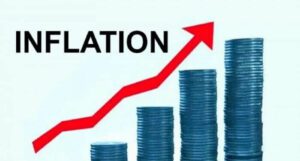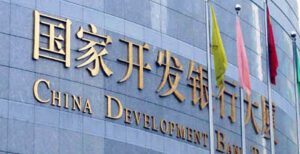

Telecom sector risks stifled growth, underinvestment amidst grappling challenges
…As Airtel, others spend over N2bn monthly on diesel
…Operators want Govt to make example of vandals, decry increased losses despite Executive Order
By Seun Ibiyemi
In the face of increase in operational costs and a growing need for enhanced telecom infrastructure, Nigeria’s telecommunications currently faces a risk of underinvestment and stagnated growth.
Statistics by the National Bureau of Statistics in December revealed that Foreign investments in Nigeria’s telecommunications sector fell sharply to $14.4m in the third quarter of 2024, marking an 87 per cent decline from the $113.42m recorded in the second quarter of 2024.
The rising costs of diesel, vandalism, and limited profit margins are putting immense pressure on the sector, threatening its growth and quality of service. Telecommunications operators in Nigeria are struggling to manage the skyrocketing cost of diesel, a critical component in powering base stations across the country.
Investigation by NewsDirect shows that Airtel, one of the leading telcos, reportedly spends over N3billion monthly on diesel to fuel its operations.
Other operators, including MTN, Globacom, and 9mobile, face similarly exorbitant expenses between N1billion – N4billion monthly which cut deeply into their profit margins.
Diesel prices have surged in recent years due to global market fluctuations and local supply challenges, forcing operators to divert resources that could have been used for infrastructure development and maintenance.
Without a tariff adjustment, telcos warn that sustaining operations at this level may become unsustainable. The telecom industry operates on slim profit margins due to the high cost of maintaining infrastructure and providing affordable services to millions of Nigerians.
These limitations hinder operators from making significant upgrades to their infrastructure, including the expansion of 5G networks and other advanced technologies.
Industry experts argue that insufficient investment in infrastructure not only compromises service quality but also slows down the sector’s contribution to Nigeria’s digital economy.
Without an upward review of tariffs, telcos may find it increasingly difficult to bridge the digital divide, leaving rural and underserved communities at a disadvantage.
Another pressing issue plaguing the sector is the continued vandalisation of telecom infrastructure. Base stations and fiber optic cables are frequently targeted by criminals, leading to service disruptions and costly repairs.
Operators have called on the government to strengthen security measures and increase penalties for infrastructure vandalism.
However, the financial burden of safeguarding infrastructure often falls on the telcos themselves, further straining their already tight budgets.
Given the critical role telecommunications play in driving economic growth, innovation, and social connectivity, experts are urging the FG to consider an upward review of tariffs. Such a move, they argue, would enable telcos to absorb rising operational costs, invest in infrastructure upgrades, and enhance service delivery.
While there are concerns about the impact of higher tariffs on consumers, stakeholders emphasise the importance of striking a balance that ensures sustainability for the industry and affordability for end-users.
“The long-term benefits of a robust and well-maintained telecom sector far outweigh the short-term discomfort of a slight tariff adjustment,” said a telecom industry insider.
Recall that the Federal Government has agreed to demands for tariff hikes in the telecommunication industry.
This is expected in the coming weeks, as the government aims to address sustainability challenges in the telecom sector. This implies that prices of calls, data and SMS will go up for the average Nigerian.
However, the hike will fall short of the 100 percent increase requested by service providers, with the government seeking to balance sector growth and protecting Nigerians from excessive financial burdens.
The Minister of communications, innovation, and digital economy, Bosun Tijani, disclosed this during an industry stakeholder forum in Abuja on Wednesday
“The essence of this gathering is recognising the critical role the telecom sector plays in driving Nigeria’s economic development,” Tijani said.
“Tariffs will go up. That’s the verdict. But it won’t be by 100%. We need to ensure that as a sector, we put the right regulations in place that can ensure the growth of this sector, continue to contribute to job creation, but also enable other key sectors in the country as well.”
He disclosed that the government had commissioned a study to evaluate the financial needs of the telecom sector while minimizing the potential impact on consumers.
…ATCON welcomes FG’s decision on tariff hike, seeks implementation within Q1 2025
In a swift response to the development, the Association of Telecommunication Companies of Nigeria (ATCON) on Thursday commended the Federal Government’s decision to hike call and data tariffs, as well as invest in the sector’s infrastructure.
ATCON President, Tony Emoekpere told journalists that though the increase was long overdue, it was welcome and a work in progress.
Emoekpere said that, as earlier advised, the tariff hike should be implemented in the first quarter of the year so that the Mobile Network Operators (MNOs) can start planning
Emoekpere said that, though, the decision to hike the tariff was a little late in coming, given the fact that the tariff had remained stagnant for years, a 100 percent tariff increase is also not too big a consideration.
“Like I said, the issue is a work in progress. Although it’s still a bit late considering how many years the tariff has remained stagnant, a 100% hike will not be a big leap.
“However, if the federal government’s decision had been delayed longer than this, a 100 per cent tariff hike would have been a lot worse.
“We (Telcos) will have to see what’s best. We have to look at how well to do this work in development,” the ATCON president said.
Emoekpere added that the federal government’s intention to also invest in telecommunications infrastructure was standard practice, as it was done in other climes.
He noted that telecommunications is a critical national infrastructure, and it is always important that the government have a say in telecommunications infrastructure.
According to him, in other countries, the government still invests in infrastructure and this would be a welcome development in Nigeria.
He said this would also boost the operations of the sector because if the government has vested interest in the sector, it would ensure that the infrastructure is actively protected.
According to Emoekpere, vandalising of telecoms infrastructure in the country has been successful over the years, because the infrastructure was not being actively protected.
He noted that with the government’s involvement, he believed that vandalisation would be reduced to the barest minimum.
…Telecom tariff increase could be between 40, 50% — Rewane
Also, reacting to the increase, the Chief Executive Officer of Financial Derivatives Bismarck Rewane has said he expects that the proposed tariff hike by telecoms companies would be between 40 and 50 percent.
Rewane said he feels it is not a “bad deal” for both telecoms companies and consumers.
“Will they get 100%? No, they will definitely not. We suspect that we are going to likely see something between 40 and 50% which is fair after so many years of static changes,” Rewane said during an appearance on Channels Television’s Business Morning on Thursday.
The economy expert, who previously backed plans for a tariff hike, said the move would make the sector more sustainable.
“Yesterday, the price of MTN shares went up by 10% to 220. The investors have already factored that in and are expecting a lot of good goodies,” Rewane said.
“But more important to think about is the fact that because of an increase in tariff and an increase in investment to make the industry sustainable, they’re going to see an increase in productivity, not directly but indirectly.
“Any increase in productivity and output is likely to allow inflation to moderate, which is the goal. So, we heard from the policymaker Bosun Tijani who was very clear that we want a sustainable sector. But we also heard from the regulator saying that we will hold these guys to quality of service.”
…Telecom operators call for proactive regulation to prevent sector collapse
The MD/CEO of VDT Communications Limited in Nigeria, Abiodun Omoniyi also raised urgent concerns about the future of the industry, stating the need for proactive and automated regulation to ensure sustainability and growth.
With operating costs skyrocketing by over 300 percent in the past two years, telcos are grappling with rising expenses for diesel, energy, transportation, and capital expenditures.
He warned that the delay in approving cost-reflective tariffs by the Nigerian Communications Commission (NCC) could lead to dire consequences similar to the challenges faced in the electricity sector.
He said, “The telecom industry, once a thriving cornerstone of Nigeria’s economy, is under immense pressure as operational and capital costs spiral out of control. Since the naira’s free float and the resultant foreign exchange volatility, capital expenditure costs for telecom operators have surged significantly. Yet, service prices have remained largely static due to regulatory approval bottlenecks.
“Maintaining a lid on the price of services while costs rise by over 300% is unsustainable,” said an industry insider. “Operators are recording losses, as seen in recent financial reports, and no investor would continue to fund a money-losing sector.”
The inability to adjust tariffs promptly threatens the quality of service.
Omoniyi warned that poor profitability could deter future investments, leading to deteriorating infrastructure and declining service quality. Consumers are already reporting increasing issues with call and data quality, signaling early signs of an impending crisis.
Drawing parallels with the electricity sector, industry experts caution that underinvestment caused by misaligned pricing could lead to the same service shortages and inefficiencies plaguing the power sector.
Telecom operators are urging the NCC to act swiftly by approving tariff adjustments to reflect the current cost realities. They advocate for the implementation of an automated system that adjusts service prices in response to aggregate cost changes.
“Such a system would eliminate delays caused by political and bureaucratic processes, ensuring the sector remains vibrant and competitive,” an industry representative said. “We are in the digital age; leaving such critical decisions to manual approval is counterproductive.”
He pointed to the electricity sector as a cautionary example of what happens when regulatory delays hinder investment. The acute shortages and poor quality of power supply are attributed to the misalignment between consumer prices and production costs. “The telecom sector is beginning to look like that too,” the source added.
The NCC has previously emphasised its commitment to a cost-reflective tariff regime, but the delay in approving price adjustments requested over a year ago raises questions about its implementation.
“Timely action is critical,” said the source. “The longer this delay persists, the more the industry decays, deterring investment and impacting consumers with poorer quality service.”
He added that to restore the telecom sector’s vibrancy, stakeholders insist that regulators must act decisively by approving the pending tariff increase and adopting an automated pricing system. This proactive approach would ensure the industry remains competitive, attracts investment, and delivers high-quality services to Nigerians.
Similarly, an insider source at 9mobile who spoke to NewsDirect on anonymity lamented the huge resources the company is losing to vandals.
The Source noted that while the telecom company is actively trying to deploy investors’ resources to develop infrastructure to improve their services, there are people who have made vandalism a business.
“Many times when we experience fibre cuts caused by vandals, area boys will usually collect up to 2m to enable our workers restore the service.”
The source further opined that if examples are made of telecom vandals, the Executive order will be more effective and telecom infrastructures will be preserved.
Without immediate intervention, the sector risks tumbling down a path of underinvestment and inefficiency, threatening its role as a driver of Nigeria’s digital economy.




